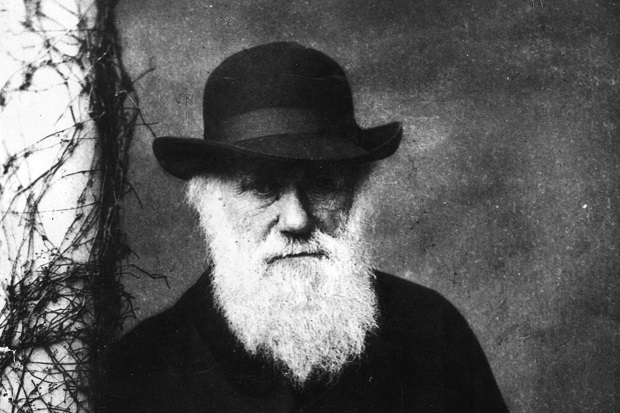‘This book is an attempt to understand the world as it is, not as it ought to be.’ So writes Nicholas Wade, the British-born science editor of The New York Times, in his new book A Troublesome Inheritance.
For some time the post-War view of human nature as being largely culturally-formed has been under attack just as surely as the biblical explanation of mankind’s creation began to face pressure in the early 19th century. What Steven Pinker called the blank slate view of our species, whereby humans are products of social conditions and therefore possible to mould and to perfect through reform, has been undermined by scientific discoveries in various areas.
But the most sensitive, and potentially troubling to the modern psyche, is the difference between human population groups that have evolved over the past 50,000 years. As Wade writes: ‘The fact that human evolution has been recent, copious, and regional is not widely recognized, even though it has now been reported by many articles in the literature of genetics. The reason is in part that the knowledge is so new and in part because it raises awkward challenges to deeply held conventional wisdom.’
The political objections are a reaction to the horrific things done in the name of race in the late 19th and early 20th centuries, culminating in the Final Solution, after which the UN’s Ashley Montagu made the influential declaration that race was to all intents and purposes a fiction. Before that, anthropologist Franz Boas had popularised the idea that we are entirely products of culture.
This has remained the conventional view, indeed the only one that academics could safely hold; yet a number of inconsistencies have begun to crack away at this noble idea.
Among them is the recent knowledge that evolution can take place far quicker than people once thought. Greg Cochran and Henry Harpending, in their book The 10,000 Year Explosion, argued that human evolution had sped up since the advent of the first cities. The drastic changes in our ancestors’ environment created new evolutionary pressures; among them were selection for qualities that were beneficial in our larger communities, such as lower levels of aggression, deferred gratification (vital for farmers), a greater willingness to trust people outside of close kin group, and the qualities required for craftsmanship, finance and various other complex skills. Thus civilisation had increased the rate of evolution, and was continuing to do so.
Their research was solid, yet as Wade says, ‘Scientific enquiry thus runs into potential conflict with the public policy interest of not generating possibly invidious comparisons that might foment racism’.
Among the areas explored by Cochran and Harpending, along with another academic, Jason Hardy, has been Ashkenazi intelligence, and yet a previous paper, despite being considered ‘fascinating’ by editors, could not be published in the United States.
It is obviously understandable why Jewish intelligence and success, the subject of extreme and violent jealousies through the ages, makes people nervous. But the outsized contribution of Jews to almost all fields must surely interest all but the dullest of minds: just 0.2 per cent of the world population, Jews accounted for 29 per cent of Nobel Prizes in the late 20th century, and 32 per cent so far in 21st century. That tiny, remarkable country Israel recently won its fifth Chemistry Prize in a decade.
One can admire Jewish culture and the Jewish work ethic, but the idea that this enormous level of achievement is purely cultural, while possible, certainly does not pass the Occam’s razor test. As Wade says, ‘People are highly imitative, and if the Jewish advantage were purely cultural, such as hectoring mothers or a special devotion to education, there would be little to prevent others from copying it.’ They haven’t.
The same is true of the Chinese, who across Asia and now the rest of the world have formed highly successful business communities and, like the Jews, have suffered attacks from jealous neighbours: ‘If Chinese business success were purely cultural, everyone should find it easy to adopt the same methods. This is not the case because social behaviour, of Chinese and others, is genetically shaped.’
As he says: ‘New evidence strongly suggests that the very different kinds of society seen in the various races and in the world’s great civilizations differ not just because of their received culture – in other words, in what is learned from birth – but also because of variations in the social behaviour of their members, carried down in their genes.’
The implications of this will trouble many people, seeing as it suggests that certain traits differ on average among population groups. He cites the MAO-A enzyme; people with only 2 copies (rather than 3, 4 or 5) have a much higher level of delinquency. And ‘if individuals can differ in the genetic structure of their MAO-A gene and its controls, is the same also true of races and ethnicities? The answer is yes.’ A team in Haifa looked at people from seven ethnicities and found 41 variations in the portions of the genes they decoded, with ‘substantial differentiation between populations’.
So why do so many people confidently argue that there is no such thing as race, because there are ‘no clear distinct racial boundaries’. This he calls ‘verbal subterfuge’, arguing: ‘When a distinct boundary develops between races, they are no longer races but separate species. So to say there are no precise boundaries between races is like saying there are no square circles.’
Wade is critical of leading biologists, economists and psychologists who have simply dismissed possible non-cultural explanations as racist, or who pin their hopes in geographic determinism, or shy away from recent evolution because of the political implications. This, he says, has nothing to do with its scientific validity but the ‘political dangers’ that researchers face in ‘pursuing the truth too far’.
The political dangers are very real; various academics have lost their jobs or faced quite extreme harassment for voicing the belief that differences in group IQ scores are partly hereditary, despite there being solid evidence that intelligence is under genetic control.
And yet these ‘accusations of racism against anyone who suggests that cognitive capacities might differ between human populations groups… are shaped by leftist and Marxist political dogma, not by science.’ He says: ‘The common sense conclusion – that race is both a biological reality and a politically fraught idea with sometimes pernicious consequences – has also eluded’ much of academia.
This book’s ideas are indeed fraught but beyond carefully explaining the dangers of misusing science, the consequences are not for scientists to ponder, but rather lawmakers and others of influence; they can choose either to consider the evidence and make things work as best as they can, using what knowledge we have, or they can continue to ignore the ticking of Darwin’s unexploded bomb, punishing anyone who raises the subject.
This hostility faced by those with troublesome ideas is, of course, itself explained by evolution. As Wade mentions earlier on, we are social creatures, and we have evolved behaviours to live as such: ‘One is a tendency to criticise, and if necessary punish, those who do not follow the agreed norms.’ That is partly why, as a species, we find it easier to talk about how the world should be, rather than how it is.







Comments